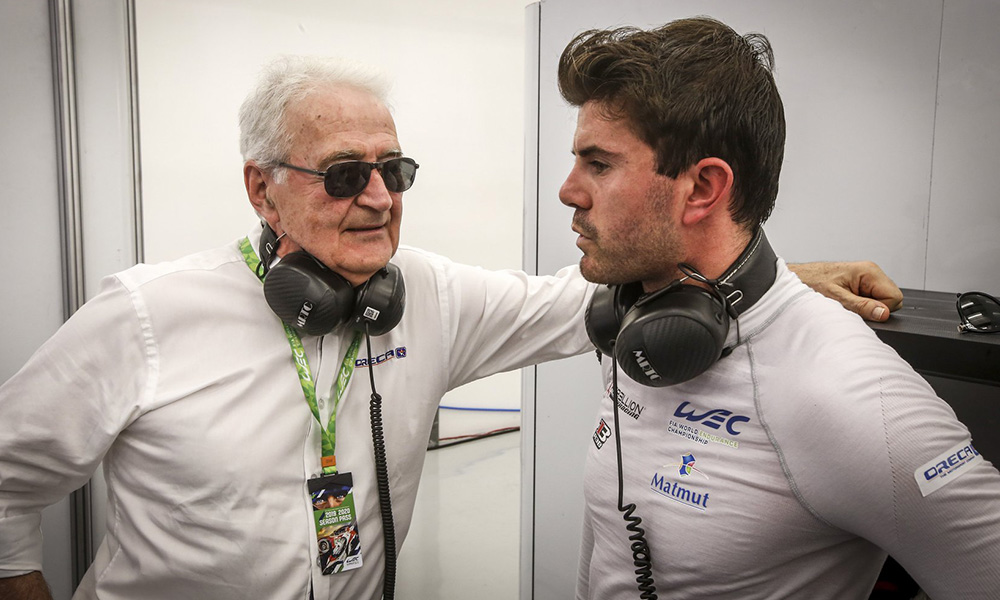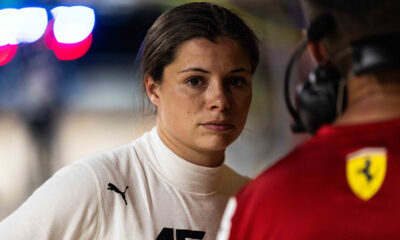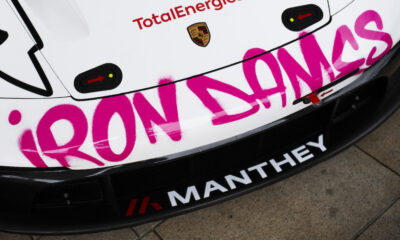
Photo: Rebellion Racing
ORECA President Hugues de Chaunac has called for IMSA and the ACO to announce the LMDh regulations within the next “eight to ten days” in order to prevent prototype convergence being “lost” due to delays.
Initially set to have been confirmed during the since-canceled ‘Super Sebring’ event last week, the two technical departments, along with input from manufacturers and constructors, are still working to finalize a draft set of regulations.
Efforts to produce the ruleset that would balance the new global LMDh regs with the ACO’s Le Mans Hypercar (LMH) platform were delayed due to travel restrictions related to the coronavirus pandemic, which has forced the steering committee to instead hold virtual meetings.
IMSA President John Doonan admitted there would likely be a small delay in the announcement due to the current logistical challenges.
Sportscar365 understands that a meeting was held last Wednesday between the four approved LMDh/LMP2 constructors, IMSA and the ACO, with the next round of meetings set to finalize the powertrain package for LMDh.
De Chaunac, however, has stressed that an announcement needs to happen within the next ten days in order to prevent any significant setbacks or fallout.
“There is an urgent need to agree, to issue regulations [in order to start] working,” de Chaunac told Endurance-Info.
“This must take place as soon as possible because this announcement of the regulations will allow companies to continue working.
“If it is to last three or four months [with delays], it is lost.
“Even on our side, we cannot wait. I am not worried about the release of the regulation because I think it will be fairly quickly. There must be convergence between LMDh and Hypercar.
“If there was 10 percent doubt before, there is a compromise.. it is mandatory. IMSA and ACO must announce within 8-10 days. We are waiting for good news.”
The regulations, which are due to debut in the 2021-22 FIA World Endurance Championship season, will hinge directly on manufacturer involvement, which de Chaunac admits could be a question mark right now given the current economic uncertainties.
ORECA had been in discussions with at least three OEMs prior to the coronavirus pandemic, which has put a pause on motorsport as well as severely impacting the automotive industry.
“Currently, this is the question mark for everyone,” de Chaunac said.
“Car manufacturers, like airlines, will fall and the economic situation will weaken motorsports. There will be a reflection on motorsports and the economy.
“The question is how will we weather this storm? Everyone is going to watch all of what is going to happen.
“At ORECA, we are looking at how to get out of this crisis. We are thinking to see what activities will no longer be done.
“We have to anticipate. What will disappear? What should be invented as a new market and new activity? You have to be agile and have the capacity to adapt.”
Taylor: IMSA Will be “Less Affected” by Potential Manufacturer Fallout
Wayne Taylor believes the WeatherTech Championship will be in a stronger position from a manufacturer standpoint, despite the rollout of the new regs in 2022 that will bring added costs to the paddock.
The championship-winning team owner and driver, who currently fields a Cadillac DPi-V.R in top-level prototype competition, has remained optimistic for the future.
“Having spoken to two of the three [DPi] manufacturers here in the U.S. the last couple of days, everyone still seems very committed,” Taylor told Sportscar365. “I think we’ll be less affected than the European car manufacturers. That’s the way I see it.
“I certainly think that everybody will get through this.
“Once this [virus] gets to a point where it starts to go away, like in China, it’s going to take a little bit of time but the auto giants and hotel groups are going to very quickly get back into business.
“I see there could be opportunity and I have faith in IMSA that they will come through with the right mix on LMDh.
“They’re very cognizant of the fact that they’ve got to support the manufacturers that have already been in the series and they’ve got to protect private teams.”
Laurent Mercier contributed to this report



























